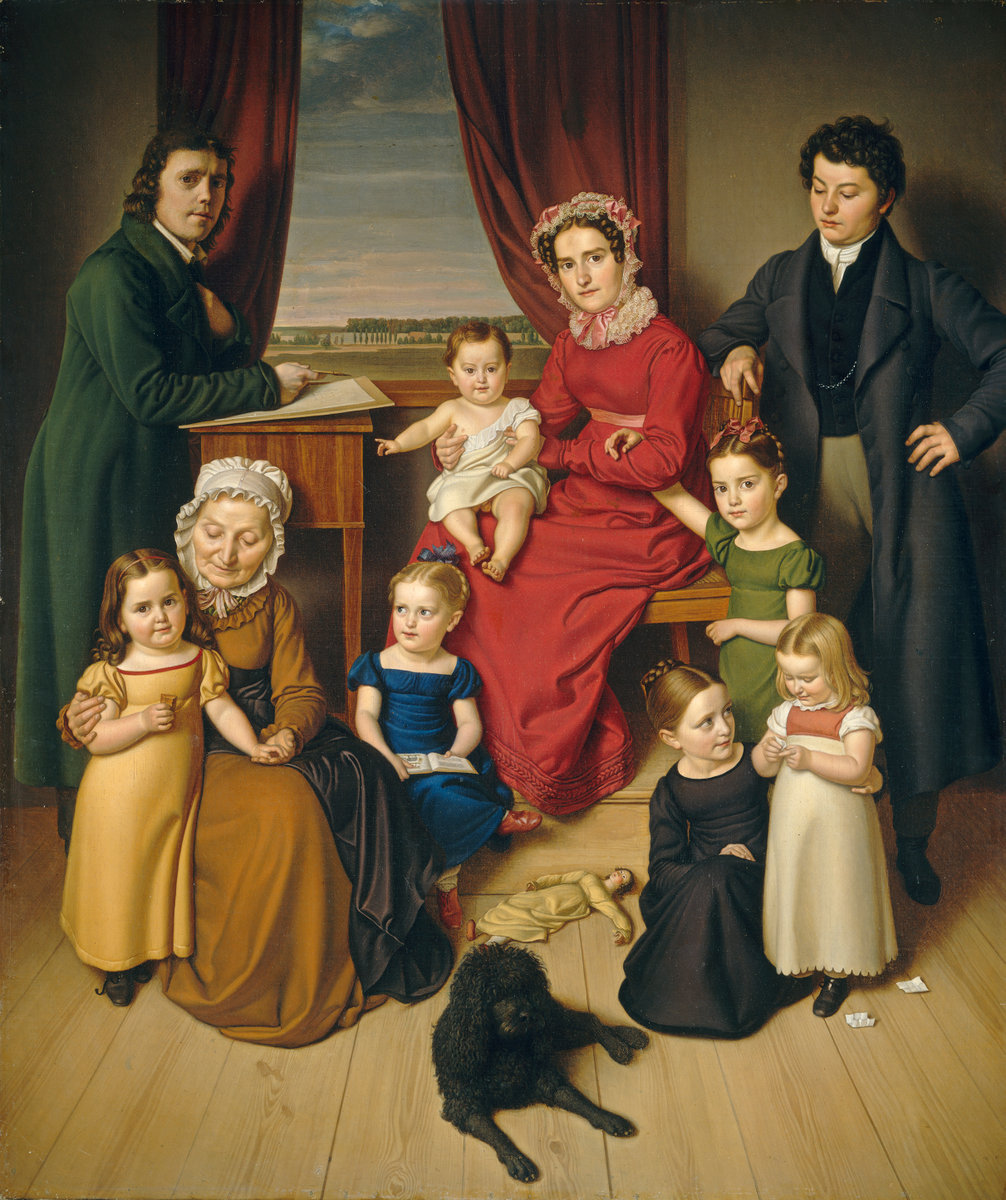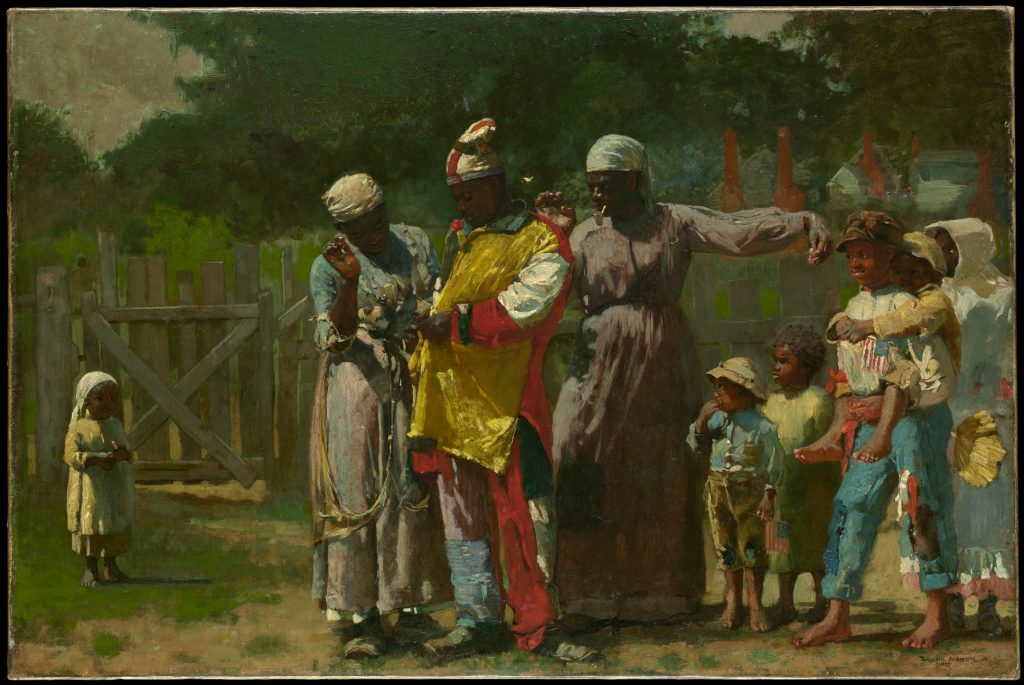
If you caught your parental partner casually reading a book by the title Selfish Reasons To Have More Kids would you raise your eyebrows? Your voice? Or just your curiosity? That scenario happened in our home a few months ago, and considering our recent agreement on family size, you can be sure I raised my eyebrows and voiced my misgivings about such a book.
I was assured that the cover was more provocative than the contents of the book, and even managed to get past the tongue-in-cheek title and read it for myself. The author, Bryan Caplan, is an economics professor and wrote the book using theories of behavioral economics to analyze data about child-rearing and parenting. His conclusion? Kids are more resilient than we think which makes parenting less important than we imagine. In other words, we parents can chill out! And on that note, he asks, why not have another?

She had so many children, she didn’t know what to do.
She gave them some broth without any bread;
And whipped them all soundly and put them to bed.
—Mother Goose
“What I’m trying to say is,” Caplan writes, “if you are a person who likes the idea of kids, being a great parent is less work and more fun than you think.”
Images of a wizened old parent living in questionable circumstances with more children than they can count slowly began to fade as I realized the author was saying less about having large families and more about the idea that much of the stress of modern parenting is self-imposed and unnecessary. Here are a few interesting ideas from the book that can have practical results and help shift our perspective when it comes to the stress of parenting.
Nature > Nurture
Drawing from decades of twin and adoption research, Caplan makes the case that nature not nurture explains most family resemblances, so we can cut ourselves “a lot of additional slack.” In an interview about the book, he shares his results after studying 40 years of research: that parents (and parenting styles) have short-term effects on kids, but after a while it fades. “The adoption and twin evidence says…the feeling that parents are changing their kids is based on an illusion. There is a big short-run effect, but the long-run effect is very different.”
Choose activities wisely, drop out freely
Have you pushed encouraged your kid to play the bassoon only to discover they don’t really enjoy it? Is chess just not clicking? Did you sign up for story time halfway across the city and regret it each time you have to make the trek? Drop out.
“A crucial step to happier parenting is to abandon ‘recreation’ enjoyed by neither parent nor child,” Caplan advises. Parents, he says, should cut out the activities that neither party is enjoying. Take a hard look at your kids’ activities and see what’s working for your family and what isn’t. “You don’t have to live up to the exhausting standards of the Supermom and Superdad next door,” Caplan reminds us. “Instead, you can raise your kids in the way that feels comfortable for you, and stop worrying. They’ll still turn out fine.”
Worried that your kids won’t know what to do with all that free time? Here’s a spoiler: they’ll probably play with the toys they love, build LEGO creations, make art to hang on your fridge, watch their favorite show, unlock the next level on their favorite game, pass a soccer ball on the sidewalk with neighbor kids, make a plan for a lemonade stand, and other activities that are the hallmark of childhood.
Raise your kids in the way that feels comfortable for you, and stop worrying! They’ll turn out fine.

Children at Play in a Garden via The Met
First feel, then fix the pain points
Take a minute to quickly think about the most difficult parenting moments in your day. Or consider the things that have made you the most stressed out in the past month. What can you do to fix those pain points?
Caplan says it like this: “Review your most unpleasant chores: How many could you safely scale back? Review your least useful chores: How many could you safely forget? . . .Look for sensible adjustments to brighten your days. Before you do something for your child, try asking yourself three questions. 1. Do I enjoy it? 2. Does my child enjoy it? 3. Are there any long-run benefits?”
When our kids begin launching hour-long pillow fights the moment we closed the bedroom door, our default reaction was to initiate a battle of wills and raised voices. But it’s demoralizing (for everyone) to end the day on a note of tension, so we tried to take Caplan’s advice to address our pain point. Bedtime is now half an hour later, and we spend that time having a family pillow fight (releasing pent up energy is way more fun when you can bludgeon mom with a pillow) or pajama walk followed by read aloud books. No more yelling from us, and the kids are actually falling asleep earlier than before! Our shouted demands to GO TO SLEEP were actually escalating the situation into something far more stressful than necessary.
Review your most unpleasant chores: How many could you safely scale back? Review your least useful chores: How many could you safely forget?
Supervise less, hire sitters more
If parenting was a pie chart, the act of supervising our kids would make up a very large slice. Caplan suggests thinking of creative ways to make the slice a little smaller.
“Think of one activity you did as a child that you are unwilling to let your own sweetheart do at the same age (baby-sitting, biking to a friend’s), and make a list of twenty things that could conceivably go wrong,” he begins. “If there are any worries that strike you as realistic, help your child prepare for them.” Take it to the next level by having your older kids do age-appropriate tasks that you normally do like buying groceries or walking the dog. They’ll love the independence and you’ll have one less errand on your list.

Dressing for the Carnival by Winslow Homer via The Met
Caplan also reminds us that delegating supervision to a family member or sitter is a reasonable strategy. “Money can buy happiness if you spend it the right way. When you’re tired, stressed, or disgusted, outsourcing your worst hours of child care can make your whole day.”
Time to make another baby?
Like all parenting books, we suggest you read Dr. Caplan’s with the intention to find a nugget of wisdom (or two) to boost creativity when it comes to raising your kids. There are valid criticisms, including the reality that having more kids requires resources of time and money more readily available to families of privilege (he even addresses this head-on, admitting that his book is mainly written for middle-class parents). But the first few chapters are spot-on with practical tips for less stress in parenting. We’re listening!
If you are a person who likes the idea of kids, being a great parent is less work and more fun than you think.
“What do good sense and economics tell you to do when the prices turn out to be lower that you thought? Buy more. Stock up,” said Caplan. “Quit fretting over how much TV your kids watch. Don’t force them to do a million activities they hate. Accept that your children’s lives are shaped mostly by their genes and their own choices, not by the sacrifices you make in hopes of turning them into successful adults.”
On that note, why not have another?

Cover image via NGA


